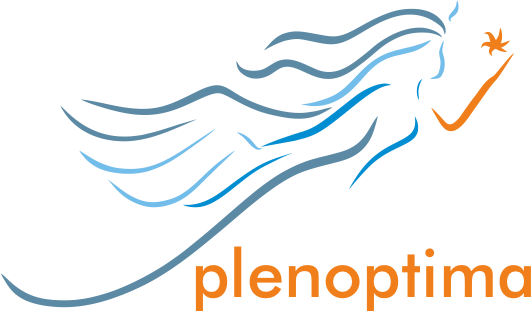Introduction
Workshop 1 is all about providing the PLENOPTIMA Early Stage Researchers with the fundamentals of research foundations, so a sound base for their research and training career.
Workshop 1 was originally planned as a live session that would be part of Training School 1 which was meant to be organised as a live event in October 2021. However, as the Training School got postponed due to the pandemic and travel restrictions, it was decided to organise the Workshop separately in an online format. This way, it was possible to assure its accomplishment at the earliest possible occasion having all ESRs present.
In the following sections, the content and schedules, lecturers, and outcomes of the Workshop are portrayed.
Content and schedule
The aim of the Workshop is to, first of all, introduce the freshly recruited ESRs to the fundamentals of science and research. Secondly, the goal is to provide the ESRs with an overview of the general research process and ethical aspects of research.
To achieve these aims, the Workshop is divided into three seminars, three hours each, on three consecutive days. Each day consists of a lecture and group discussions in breakout rooms. The ESRs prepare for the seminars by reading assigned literature and preparing questions for the discussions. Next, the content and schedule of each day is presented.
Day 1: Philosophy of Science Paradigms
Date: Wednesday 26th of January 2022, 09.00-12.00 CET (10.00-13.00 EET)
Lecturer: Prof Kristen Snyder, Mid Sweden University, Sweden
Purpose: In this seminar, the ESRs explore the basic concepts in the philosophy of science that relate to knowledge and knowing and introduce research methods. In particular, they ponder questions such as, what is knowledge? What is science? What is the nature of inquiry? In our explorations, we address different paradigms as they relate to the above questions.
Day 2: Research Process and Research Design
Date: Thursday 27th of January 2022, 09.00-12.00 CET (10.00-13.00 EET)
Lecturer: Prof. Mårten Sjöström and Prof Kristen Snyder, Mid Sweden University, Sweden
Purpose: In this seminar, the ESRs assess, what is a research process and research design? Why is it important? What issues does one as a researcher need to consider? Are there different types of research design depending on the methods that are used? We discuss quantitative approaches to research, the role of the researcher, design, data collection, data analysis, reliability and validity, and generalizability. Additionally, we mention models for mixed methods research that can be used to combine qualitative and quantitative methods.
Day 3: Research Ethics
Date: Friday 28th of January 2022, 09.00-12.00 CET (10.00-13.00 EET)
Lecturer: Prof Atanas Gotchev, Tampere University, Finland
Purpose: In this seminar, we define ethics in research. The ESRs come to the seminar having read the chapters in the assigned readings and are prepared to identify and talk about the different concepts within ethics in research. What are they? How can you address them? In what ways are they influenced by your research paradigm? Why are ethics important to consider in research?
Lecturers
The content of the Workshop was designed and taught by Prof. Kristen Snyder (link to biography) and Prof. Måten Sjöström (link to biography) from Mid Sweden University as well as Prof. Atanas Gotchev from Tampere University.
Outcomes
Workshop 1 is fundamental for understanding scientific research and the contents coincide with courses given on the subject at the respective universities.
As an end result of Workshop 1, the ESRs have gained the following learning outcomes: 1) research-oriented skills, i.e. the cornerstones for science and research, and 2) understanding of research processes, including quantitative and qualitative approaches as well as expected morals of researchers.
After the seminars, the ESRs will write reports on the contents in order to obtain the credits. Workshop 1 renders between 2 and 4.5 ECTS for the ESRs, depending on the extent of their reports.
